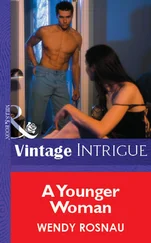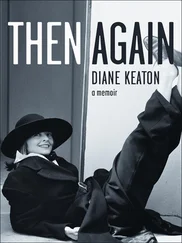‘Well, about time too,’ cried the notebook, leaping into my hand. ‘Fancy leaving me behind when you left! Letting them stash me here with worn shmottas and chipped cups, and crumbling paperbacks, and diplomas nobody has asked to see since the ink was dry! Aren’t you ashamed of yourself? To forget about me! Me! Journal of your first trip to Europe, though sporadically kept, may I say, and puerile, and sloppily written back in the days when you were fool enough to think you could trust your memory. Daft child! She who did not intend to keep her journal should not have kept one in the first place. What for? “For posterity?” Honey, in case you ain’t noticed, a whole lot of your posterity is behind you. The pun implicit is all yours, by the by. I’ve had my fill of puns thanks to your precocious appetite for the damn things in your teens.’
Merely holding the journal in my hand, before I had read a word of it, brought a vivid memory back to me: the ship had started pulling away when I saw my father break free of the crowd on shore. Alone, he walked the length of the dock and stood for as long as I could see him, waving the ancient, perplexed farewell of parents to their departing children. Already he was barely in sight, a little figure at the perilous end of the pier. A boy leaning next to me on the sticky rail was whistling ‘Jesu, Joy of Man’s Desiring’. And I was swept by a wild and paradoxical new feeling, comforting and scary, sweet and painful, thrilling and melancholy: I thought it must be loneliness. And I was right.
From our arrival into life, a journey that frees the spirit must cross water. No matter how arduous and dangerous, overland travel leads logically from one foregone conclusion to the next on this mapped world. But on all the breadth of oceans there is no fixed logic, no still border, no language except the one you carry on board; in all the depths of oceans there is no history but prehistory. Time itself is adrift; clocks run down while terrestrial minutes give up their ground to a celestial measure. Somehow, I have conspired to spend more of my life at sea than any woman I know of similarly constrained upbringing. And when I say ‘at sea’, I do mean in fact as well as fancifully.
‘1954: At sea! I have only ever been on the ocean before when Dad took me deep-sea fishing once in Florida. This is different; tonight for the first time ever I will sleep at sea! All at sea! It is divine to be alone. And it was divine to walk around the ship and learn it, all by myself.’
‘All by myself’: favourite words since the first time you tied your shoes all by yourself, and rode the bus all by yourself, and finally when you were fourteen or so stayed in the city sometimes all by yourself while your family went to the house in the country for weekends. Of course, dear child, one of the disadvantages of keeping any sort of journal is that it presupposes some sort of reader, even if it is only oneself years later. The moment pen is put to paper the writer ceases to be all by herself. Nor, strictly speaking, were you anything like alone on your first trip to Europe. The deck was crowded with young Americans, thirty or forty of them on the very same undergraduate tour as you. And even as the ship was leaving port, the suitcase in which you had packed your pristine journal was being tossed on an upper berth by one of four cabin mates you had yet to meet. You could be a snooty little Manhattan bitch on the quiet, by the by.
‘July, 1954: They are dreadful girls from the Midwest, not with our group. We are called “Study Abroad”, mostly from the east. One of them is with some sort of religious tour called “Faith Studies” and headed straight for Rome. She is called Sally or Jane or Mary. Possibly all three. She spent all the time we were pulling away playing solitaire hands of bridge. And while I was on deck, she was busy moving me out of my berth into a less desirable upper one. She had the nerve to say the steward assigned her to the lower bunk. According to the brochure, allocation of bunks is first come, first served, and Dad got us to the pier really early to secure a lower bunk for me. He was afraid when the sea was rough I might roll out of the top one. But what can I do? With a long journey ahead, I must let it pass. Hereafter, I will call her Ass-in-igned. The other two are Ruth and Ethel. They are with a group from their college. Hereafter I’ll call them Nothing A and Nothing B. Sat out on deck with the Nothings until 2.30. They twittered nothingspeak about their boring college and their boring boyfriends. But my mind was somewhere else. I kept seeing the dear old Statue of Liberty and remembering how a few hours earlier she had reversed the welcome she had given Grandpa Joe and Grandma Ida half a century before into a “bon voyage” for me. How do you know when you leave home for the last time? How do you know when you are leaving home for ever?’
In spite of a nod to my paternal grandparents on departing, I was not looking for my roots or expecting to find them abroad. Student tours such as the one I was on went nowhere near the misty regions of Eastern Europe whence most of my people had fled their unplumbed villages besieged by dangers rarely spoken of to their well-nourished American grandchildren.
‘But why, why do you want to live there?’ my father cried years later when my schooling was finished and I announced my imminent expatriation to Europe. ‘All of them want to come and live here!’
I come from a tribe of tumbleweed nature; we rolled up our roots in shawls and scrolls, and ran with them before the wind. No, I was not looking for roots; I took them with me. I was looking for the source of what I knew as culture – the places where words and art and music came from – and I was looking for a good time. My best friend and room-mate at university, Marjorie, had taken the Study Abroad tour the preceding year and she promised me I would certainly find the fun.
The upper berth I complained about was next to a porthole, and it turned out to be wonderful. Movies were mainly in black and white back then. Without colour telly, without computers or computer games, our adventures were never virtual: they had to be the real thing or nothing. True enough, books have always been able to take an imaginative landlubber out to sea, but they cannot keep her there when the ship is becalmed and she would rather be somewhere else. Besides, on a literary voyage the author has to tag along. But for one week every sunrise was all my own. Six times through the porthole with my own eyes I watched the new sun tenderly separate the infinite black round into sky and sea: six times I watched life being created again out of space and brine.
‘July 1954: It is so very big. Every day or two the Captain tells us to set our watches up an hour. Columbus needed such a long time to cross the ocean going the other way, he must have accumulated hours much, much slower than we are losing them. Did he factor the slow gain into his navigation, I wonder? Did he expect to find a new time in the New World? Do I expect to find an Old Time in the Old World? What will I find there, I wonder?’
And I wonder now, deciphering my faded scrawl: did we have biros in 1953? If we did, they must have been newfangled and dear, for by the fourth day at sea I complain of losing my pen, and ink does not reappear in the journal until weeks later when the tour arrived in Venice. For all my importuning of solitude – ‘O, to be alone!’ I wrote near the end of the crossing, ‘without another American sophomore always at my elbow!’ – I have always been indiscriminately social, seeing all strangers as diminutive nations full of curiosities and odd customs. Only in middle age did I learn how to wriggle guiltlessly off the hook of my own conviviality and walk away alone; when I was younger and hopeful of soulmates, I often found myself in too deep. After merely one day at sea a potential best friend had arisen out of the welter of college students aboard. A best friend was necessary to a smart American college girl’s life in the early 1950s, as a psychoanalyst was to become a few years later and her own credit card is now. Evelyn Esposito was majoring in Biology at I forget which state university and was on the same tour as I. She was a happy choice for temporary best friend: not only did she appear, at least in the beginning, to be laid back and cheerful, she also spoke a smattering of Italian and had relatives in Genoa who were going to welcome us into their home for a few happy hours off the itinerary. She and her tall, stringy and slightly dour travelling companion, Midge, were three years older than I. For a teenager in those days, and perhaps even now, three years separated underclassmen from seniors, garter belts from girdles, and virgins from women of the world.
Читать дальше
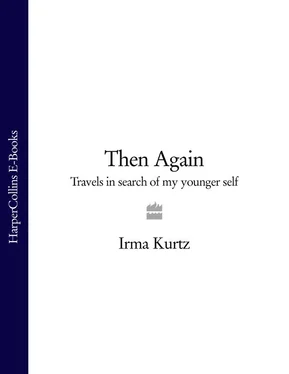




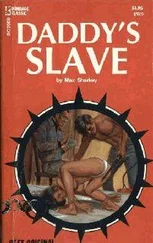
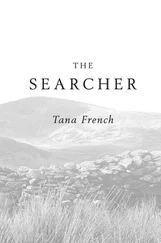
![Marcel Proust - In Search of Lost Time [volumes 1 to 7]](/books/579170/marcel-proust-in-search-of-lost-time-volumes-1-to-thumb.webp)
